Continuing the series profiling this year’s new crop of University Music Performance Scholars and Award Holders. This week, first-year flautist reading German and English Language and Linguistics, Performance Scholar Beth Chapman,
I actually had a bit of a late start to my musical journey, and that’s not even talking about the flute! I moved around a lot as a kid, constantly meeting new people and relocating to new houses so it wasn’t until I really settled somewhere, that I decided to give music a shot. I first learnt to play the piano aged 8 in Ottawa, Canada but after moving back to England, I struggled to find my enjoyment in the piano again and after 2 years I decided to quit. Despite this, I have now actually got back into playing the piano for fun and enjoy just messing around and learning pieces.
Luckily, I am not the only musical person in my family, my mum also plays the flute and piano and sings in our local Military Wives’ choir. Due to this, I decided aged 11 I would start the flute and had my first lesson at the end of year six. My most vivid memory of my first lesson was how out of breath I was, going back into my classroom proudly showing off my flute case to my classmates as it was that shiny new toy. (well actually the flute was about 30 years old!) I’d had a really thorough musical education in all my primary schools, playing in the school orchestra and singing in the choir but it wasn’t until I reached secondary school that I really started understanding the joys of music.
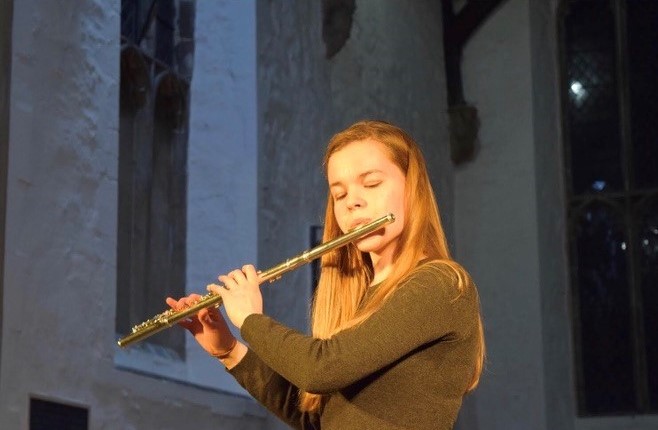
In year 7, I joined my school’s orchestra and junior choir, (Hinchingbrooke School in Huntingdonshire) but despite this, it wasn’t really until the beginning of year 9 in which I picked music as an ‘option’ – a bit like a precursor to GCSEs- that music started to make sense for me. During this period, I was continually playing in the school orchestra, but also started taking part in the pit band for the school’s musicals, playing both flute and piccolo, and the most intense by far was Sweeney Todd! I also continued to sing in the senior and community choir in my final few years at Hinchingbrooke. Throughout secondary school and Sixth Form, I had the opportunities to lead the flute choir, as well as take part in the biennial Christmas concert performance of Raymond Briggs’ The Snowman, originally playing second flute, then moving to first flute in year 11; a huge achievement for me.
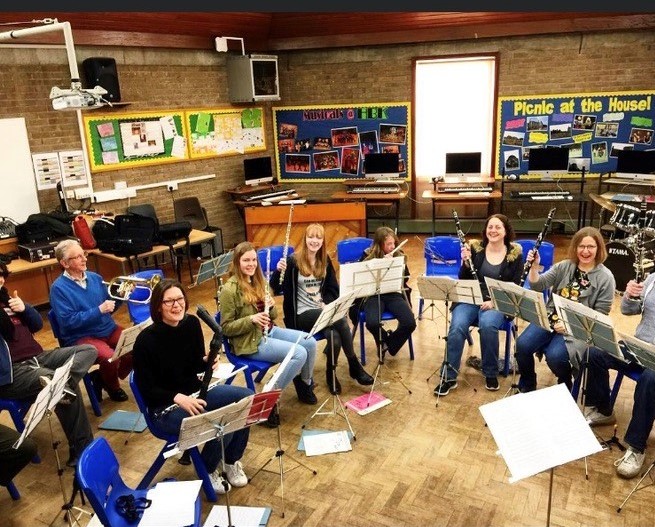 What also helped was joining our local music school (HUMS, pictured above) in which I was taught for a period of time and also played in a concert band there as well as in the recorder group with my mum. We both love the recorder, and currently own a wide range of sizes from descant to bass! At the end of year 10, I had the wonderful experience to travel to Marburg, Germany with one of orchestras HUMS. We travelled there to take part in a music festival, and joined other groups from Bulgaria, Slovakia, Austria and Germany. We went for four days, leaving at 2am and driving all the way to Marburg, to then perform in the evening! We played in concerts every day, alongside being able to view the brilliant other dancers and performers, and the lovely market town of Marburg. It was a really great experience and allowed me to really get an understanding of different music styles
What also helped was joining our local music school (HUMS, pictured above) in which I was taught for a period of time and also played in a concert band there as well as in the recorder group with my mum. We both love the recorder, and currently own a wide range of sizes from descant to bass! At the end of year 10, I had the wonderful experience to travel to Marburg, Germany with one of orchestras HUMS. We travelled there to take part in a music festival, and joined other groups from Bulgaria, Slovakia, Austria and Germany. We went for four days, leaving at 2am and driving all the way to Marburg, to then perform in the evening! We played in concerts every day, alongside being able to view the brilliant other dancers and performers, and the lovely market town of Marburg. It was a really great experience and allowed me to really get an understanding of different music styles
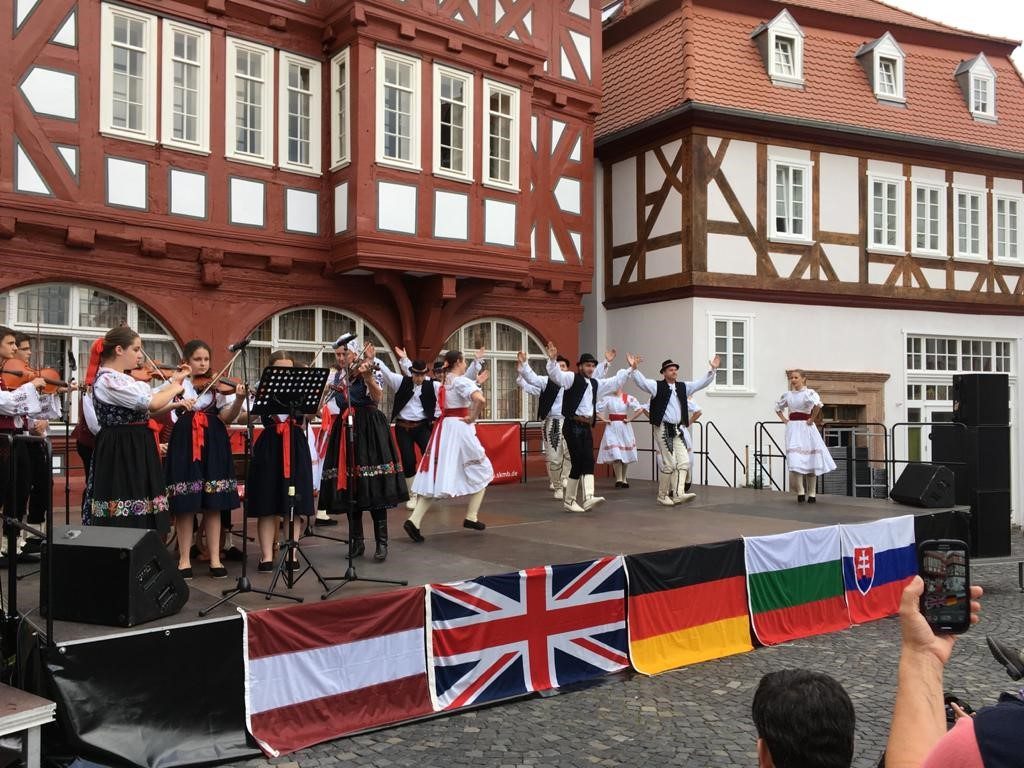
I studied music at GCSE and A-Level, in which I found my love for analysis of music and writing chorales, as I loved the rules and logic behind them. A-Level was interesting for me as I was the only person in my class for two whole years(!), but despite this, I had a wonderful time, visiting the Birmingham Conservatoire and taking part in annual workshops with lecturers there, as well as viewing the rehearsals for Stravinsky’s Rite of Spring (one of my favourite pieces!). I was also lucky to be involved with much more performing in Sixth Form, partly due to my wonderful music teacher’s great encouragement (Thanks Mrs Cooke!). In my final year, I was lucky enough to play in my school’s “Rising Stars” concert as well as Sixth Form Celebration Evening which were both overall a wonderful way to end my 7 years at Hinchingbrooke.
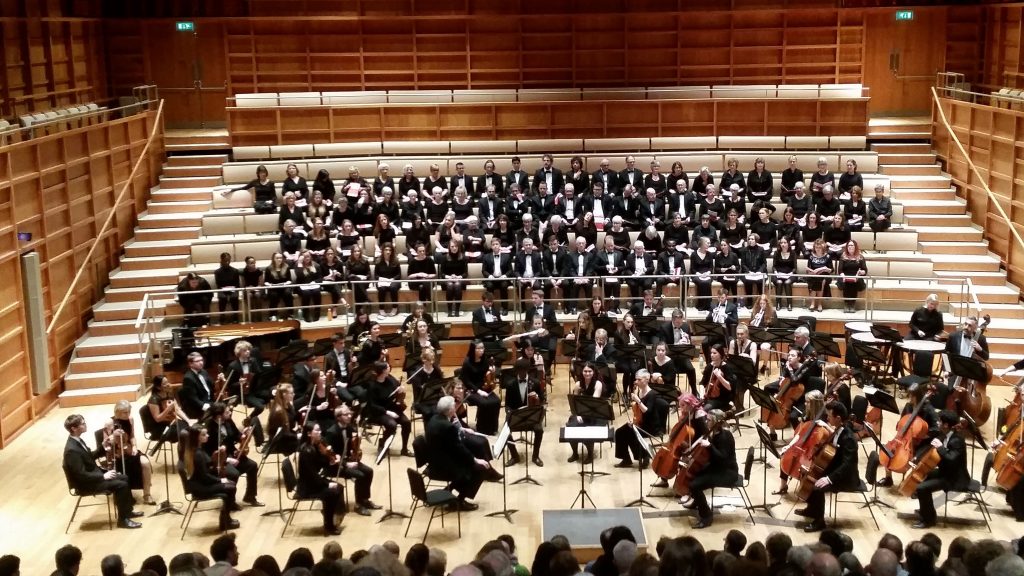
Since joining the university of Kent as a German and English Language and Linguistics student (it’s a mouthful I know!) I’ve thrown myself into the musical options available. I chose Kent especially for its wonderful music facilities and was a huge deciding factor when picking my top choice. I currently take part in the Concert Band and Orchestra and am a holder of the Music Performance Scholarship. Surprisingly, I’m not actually an incredibly confident performer, but since receiving the Music Performance Scholarship, it’s given me a chance to play in much larger ensembles, which is something I never had the opportunity for before, as most ensembles I played in had around 20 or less members, and I’ve seen how this has helped my confidence! So far, I have taken part in one concert with the Orchestra (pictured), which was such a fantastic experience, as I’ve never performed something of that scale before. I’m incredibly excited for the Canterbury Cathedral concert in March, as well as the Summer Music Week later on in the year.

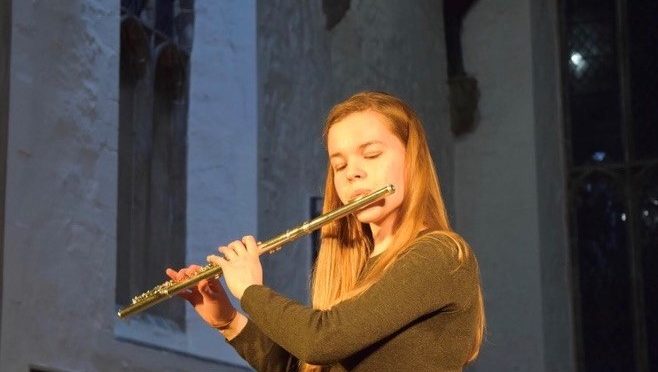
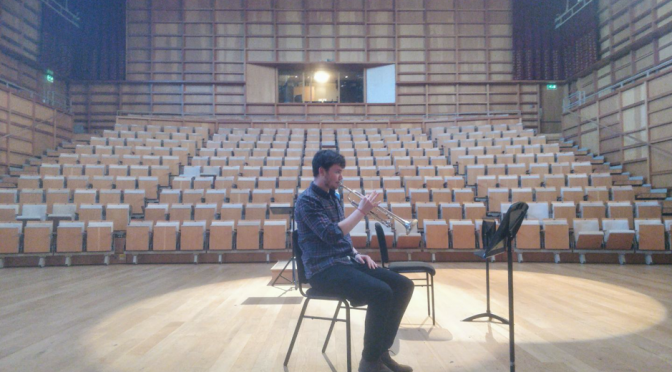
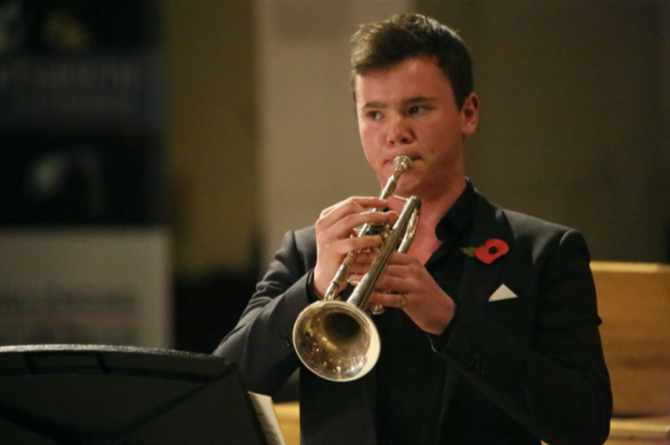 Although I predominantly play the Trumpet, I was the Soprano Cornet in my school brass band for the entirety of my time in secondary school and sixth form, which I enjoyed tremendously as the Soprano part tended to be a little more interesting than the solo cornet’s.
Although I predominantly play the Trumpet, I was the Soprano Cornet in my school brass band for the entirety of my time in secondary school and sixth form, which I enjoyed tremendously as the Soprano part tended to be a little more interesting than the solo cornet’s.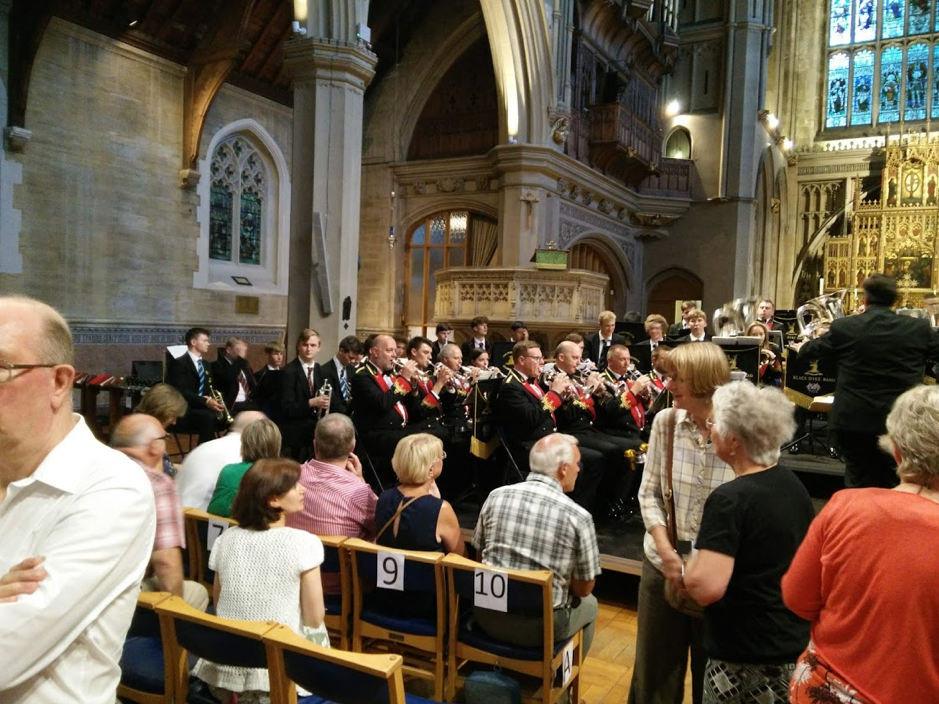 I have been extremely fortunate to have had the opportunity to go on tour with my school brass band several times, to Paris, Italy, Austria, Barcelona and Prague, all of which were awesome trips (especially as I had a good group of friends there too!)
I have been extremely fortunate to have had the opportunity to go on tour with my school brass band several times, to Paris, Italy, Austria, Barcelona and Prague, all of which were awesome trips (especially as I had a good group of friends there too!)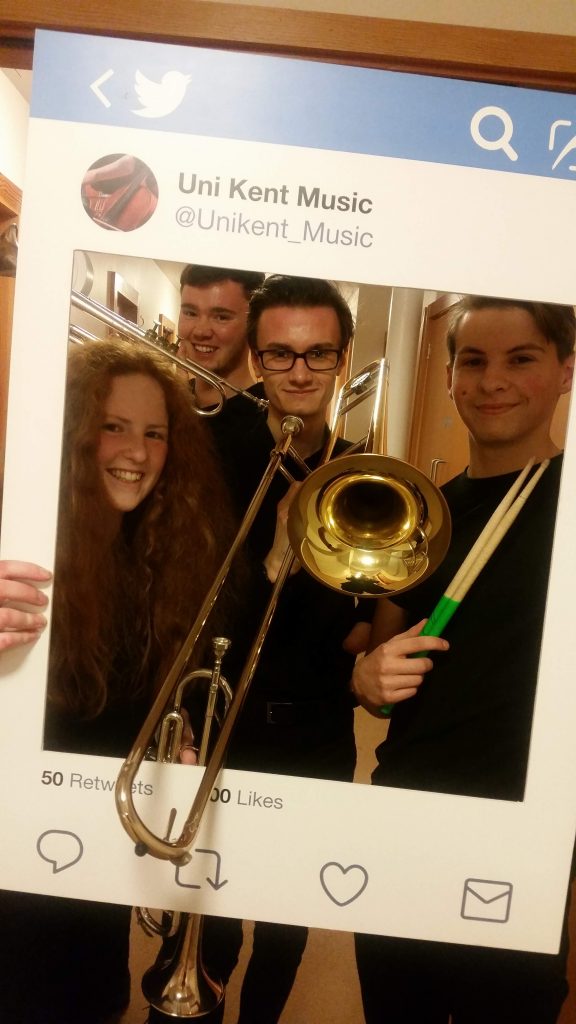 Since starting at the university, I’ve been involving myself in a number of groups: Symphony Orchestra; the Big Band; General Harding’s Tomfoolery (a 1940’s style swing band); the Concert Band; and at times dropping into a brass ensemble. Concert preparation was underway by Week Two, and before Christmas the Orchestra, Big Band and Tomfoolery group each had a concert – it was demonstrated to me quite how nice it is to perform in a space like the new(ish) concert hall.
Since starting at the university, I’ve been involving myself in a number of groups: Symphony Orchestra; the Big Band; General Harding’s Tomfoolery (a 1940’s style swing band); the Concert Band; and at times dropping into a brass ensemble. Concert preparation was underway by Week Two, and before Christmas the Orchestra, Big Band and Tomfoolery group each had a concert – it was demonstrated to me quite how nice it is to perform in a space like the new(ish) concert hall.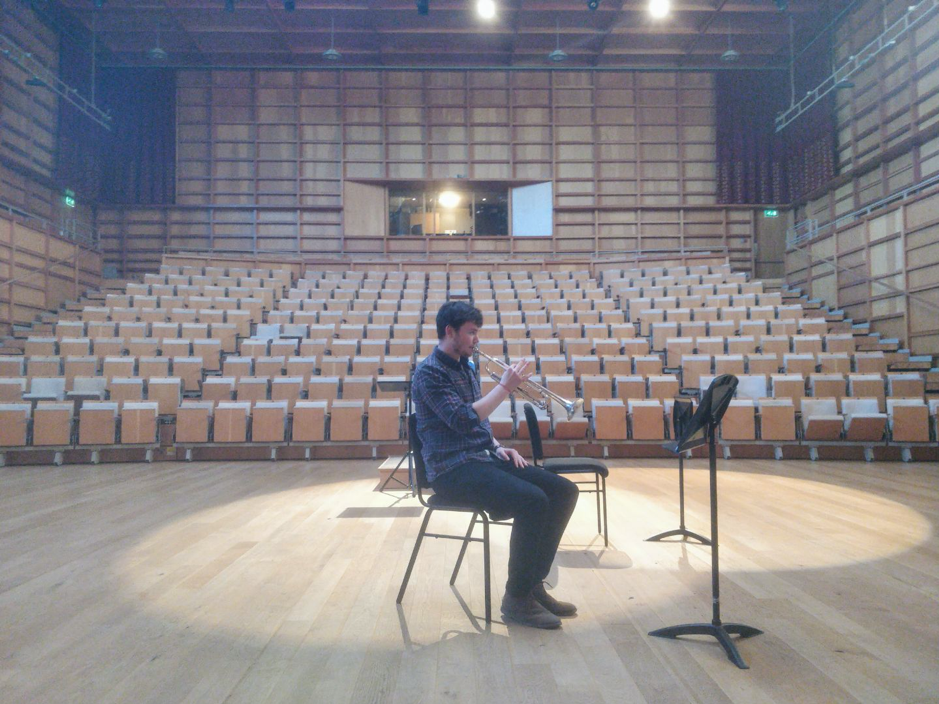 Coming up before then end of this term is an Orchestral concert in the Cathedral (we’re playing Saint-Saens’ Organ Symphony and Durufle’s Requiem – both massive pieces which will be awesome to play in such a venue), a joint Big Band-Concert Band concert in the Colyer-Ferguson hall, and a Tomfoolery lunchtime concert – with dancers! I will also be playing in a chamber orchestra children’s concert of Peter and the Wolf; which I rather hope they’ll be resurrecting David Bowie to narrate…
Coming up before then end of this term is an Orchestral concert in the Cathedral (we’re playing Saint-Saens’ Organ Symphony and Durufle’s Requiem – both massive pieces which will be awesome to play in such a venue), a joint Big Band-Concert Band concert in the Colyer-Ferguson hall, and a Tomfoolery lunchtime concert – with dancers! I will also be playing in a chamber orchestra children’s concert of Peter and the Wolf; which I rather hope they’ll be resurrecting David Bowie to narrate…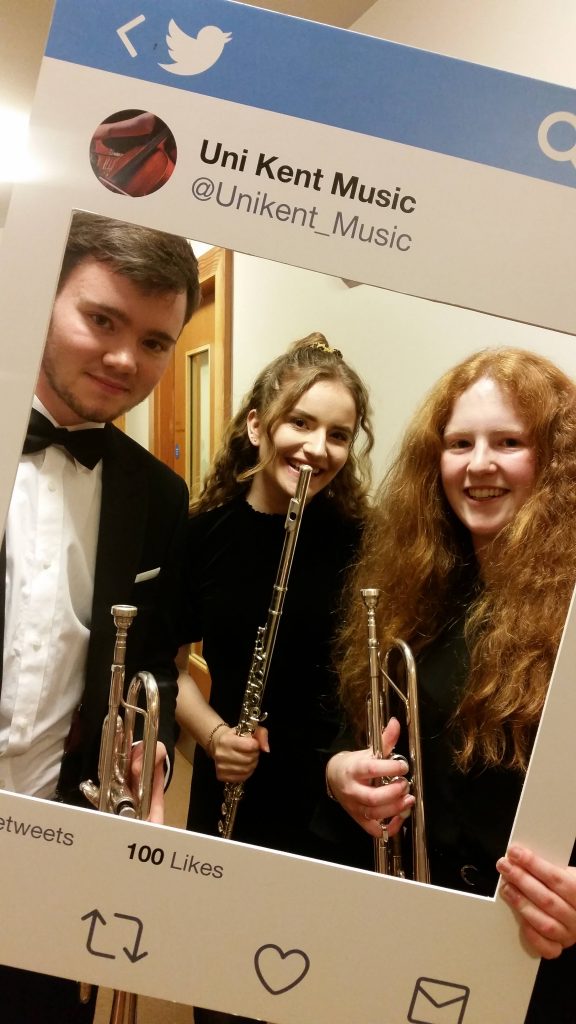
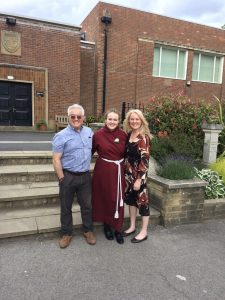 I began taking piano lessons when I was five years old and soon after, my teacher noticed I had good pitch, so offered to give me a few singing lessons to see if I enjoyed them (which I did!) 13 years later, I am still thoroughly enjoying both piano and singing, having reached up to Grade 8 standard on piano and achieving Distinction in both my Grade 8 exam and diploma in singing.
I began taking piano lessons when I was five years old and soon after, my teacher noticed I had good pitch, so offered to give me a few singing lessons to see if I enjoyed them (which I did!) 13 years later, I am still thoroughly enjoying both piano and singing, having reached up to Grade 8 standard on piano and achieving Distinction in both my Grade 8 exam and diploma in singing.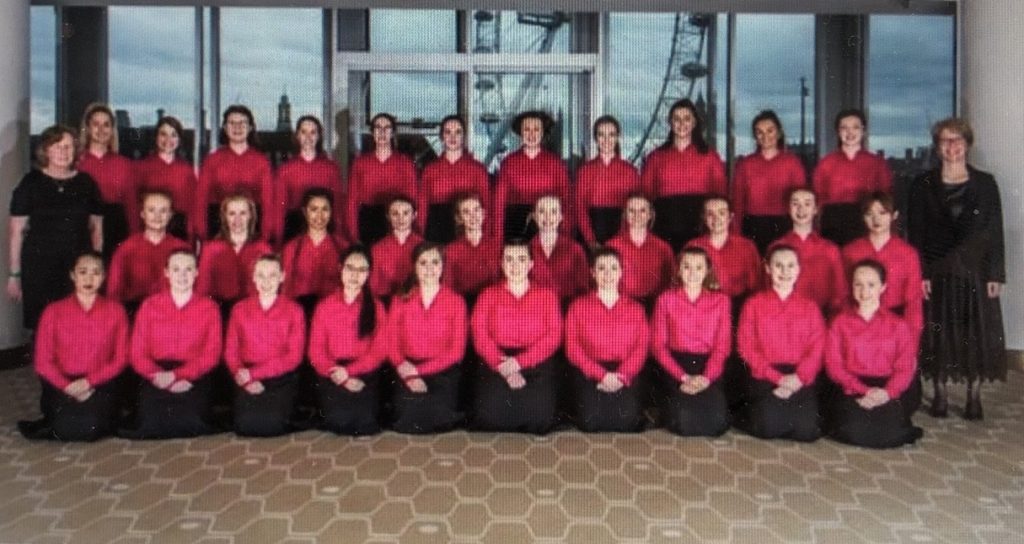
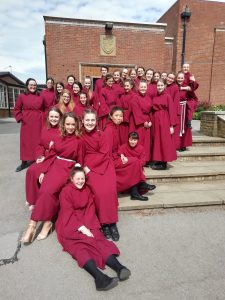 In rehearsals and certain performances, we sat in choir stalls in our school Chapel and after each year when students left, you would slowly make your way up the row to the front. It was so lovely because as I progressed further up the row, I was given more opportunities to develop my solo singing within the choir and undertake more responsibilities. This culminated in eventually me becoming Row Leader and during Year 13, I was chosen to be Head of Chapel Choir, which was and still is a position which meant so much to me. Having been a part of the choir going on five years at that point, it was such a lovely role to have to bring my time at Harrogate Ladies’ College to an end. Within this role my confidence in my own music ability grew massively. I was tasked with leading the choir during services, performances, keeping the beat during the unaccompanied morning Amen’s in Chapel (a much harder task than it originally seemed!) and regularly singing solos.
In rehearsals and certain performances, we sat in choir stalls in our school Chapel and after each year when students left, you would slowly make your way up the row to the front. It was so lovely because as I progressed further up the row, I was given more opportunities to develop my solo singing within the choir and undertake more responsibilities. This culminated in eventually me becoming Row Leader and during Year 13, I was chosen to be Head of Chapel Choir, which was and still is a position which meant so much to me. Having been a part of the choir going on five years at that point, it was such a lovely role to have to bring my time at Harrogate Ladies’ College to an end. Within this role my confidence in my own music ability grew massively. I was tasked with leading the choir during services, performances, keeping the beat during the unaccompanied morning Amen’s in Chapel (a much harder task than it originally seemed!) and regularly singing solos.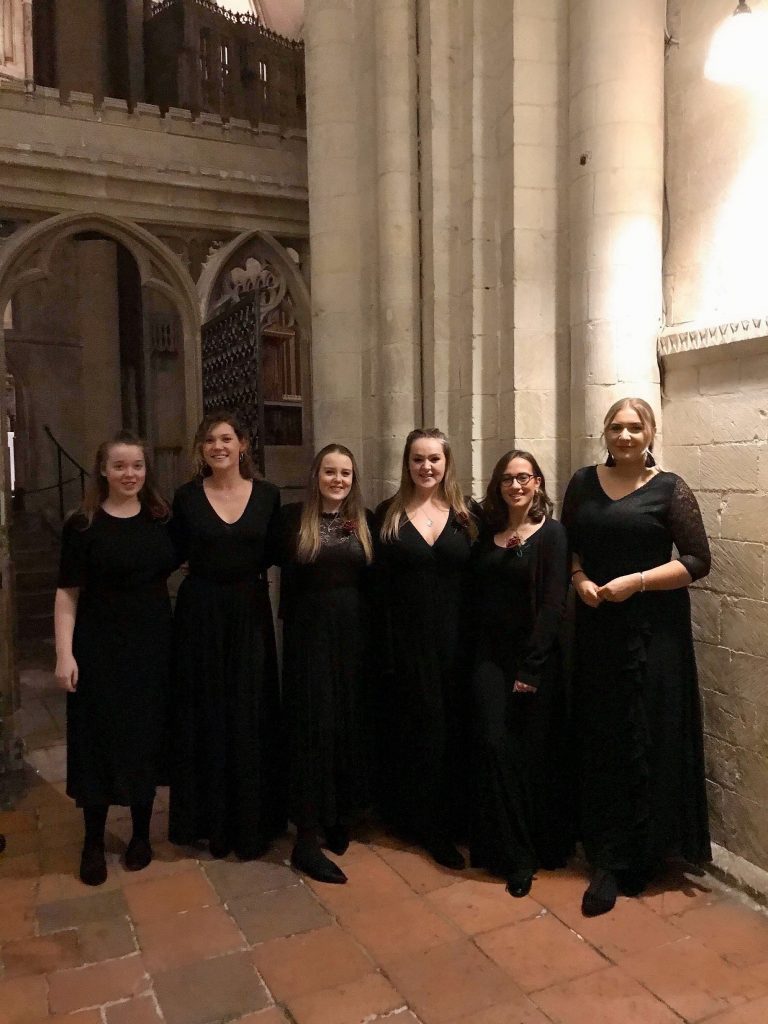
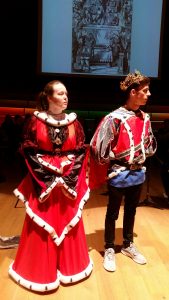 During my time so far as a Biomedical Science student at the University of Kent, all of the extra-curricular music activities has been a lovely way for me to relax away from my studies. I have been extremely lucky and grateful to be a part of the University Chorus, Chamber Choir, Cecilian Choir and a recipient of the Music Performance Scholarship. The Chamber Choir sang at the Cathedral for the Carol Service in December, and I’m currently singing the role of the Queen of Hearts for a production of Alice in Wonderland, and looking forward to singing in Canterbury Cathedral with the Chorus, Chamber Choir and at Choral Evensong with the Cecilian Choir later in the year.
During my time so far as a Biomedical Science student at the University of Kent, all of the extra-curricular music activities has been a lovely way for me to relax away from my studies. I have been extremely lucky and grateful to be a part of the University Chorus, Chamber Choir, Cecilian Choir and a recipient of the Music Performance Scholarship. The Chamber Choir sang at the Cathedral for the Carol Service in December, and I’m currently singing the role of the Queen of Hearts for a production of Alice in Wonderland, and looking forward to singing in Canterbury Cathedral with the Chorus, Chamber Choir and at Choral Evensong with the Cecilian Choir later in the year.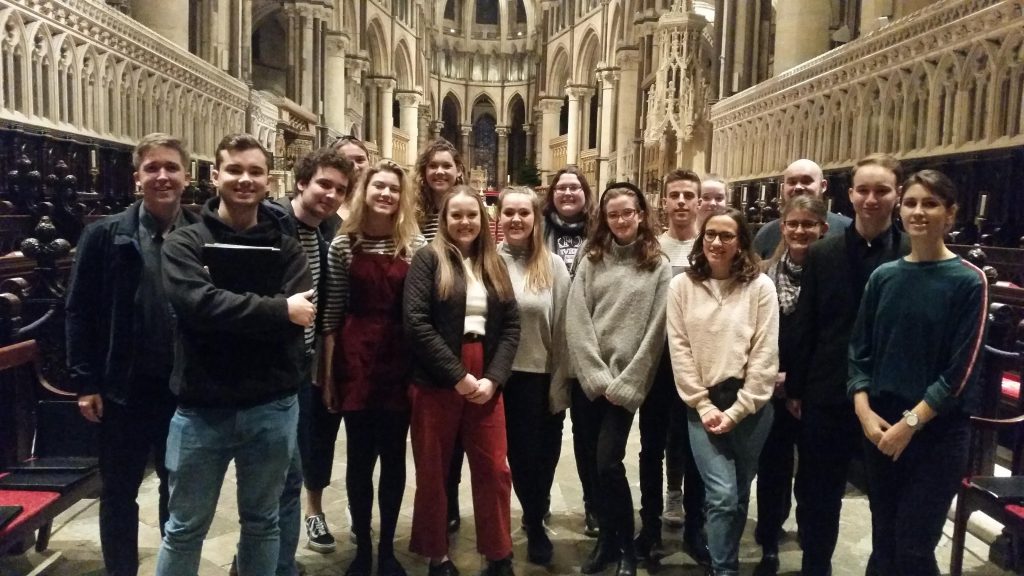
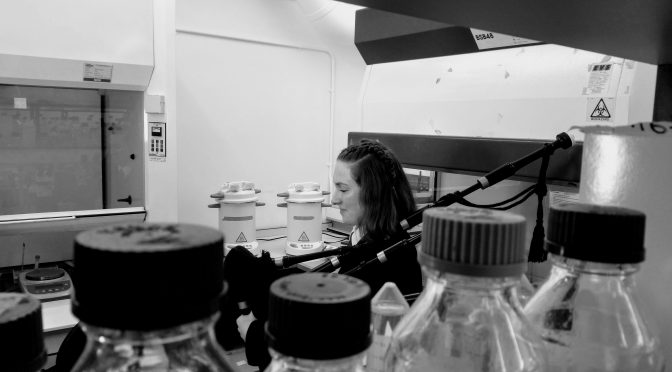
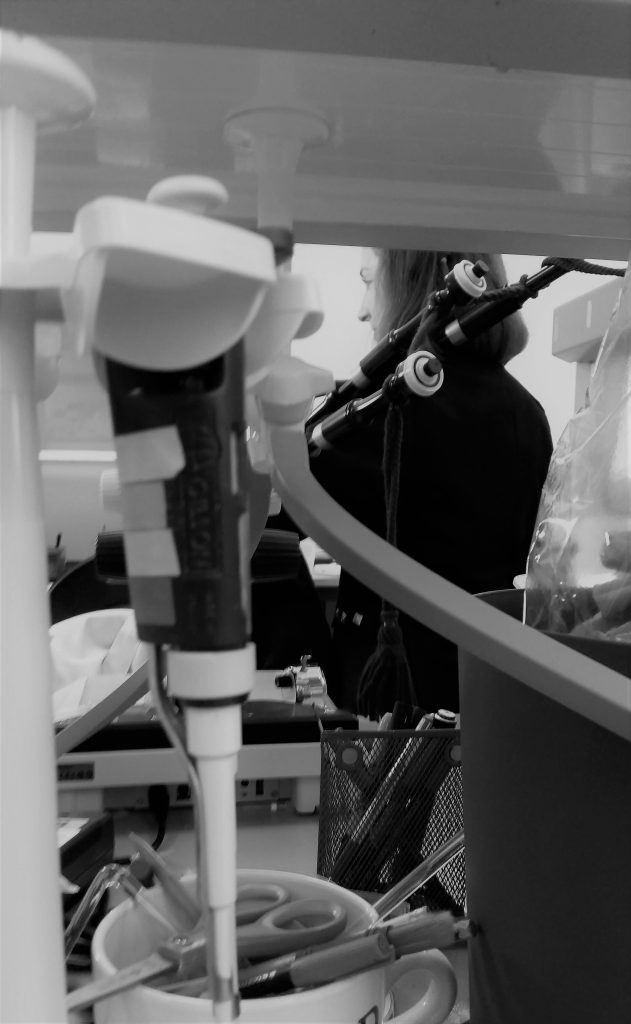
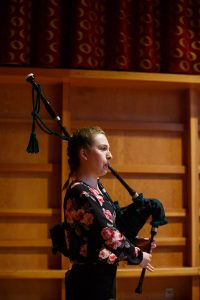
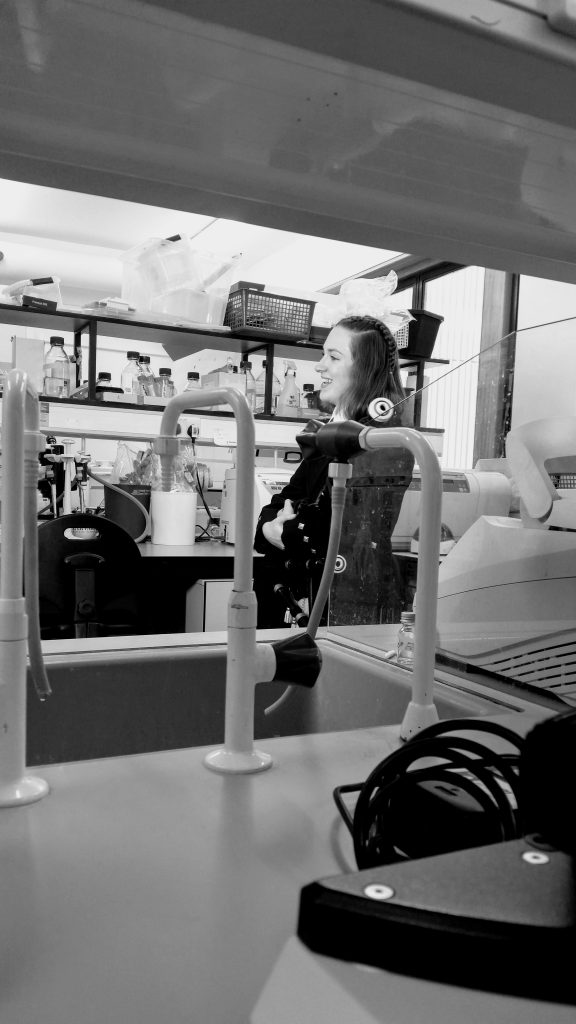 Representing two aspects of university life coming together, Eloise will be the focus of a feature in next month’s University magazine, and this morning’s photoshoot drew her away from the concert-hall and into the scientific enviroment. We’re looking forward to reading the feature next month.
Representing two aspects of university life coming together, Eloise will be the focus of a feature in next month’s University magazine, and this morning’s photoshoot drew her away from the concert-hall and into the scientific enviroment. We’re looking forward to reading the feature next month.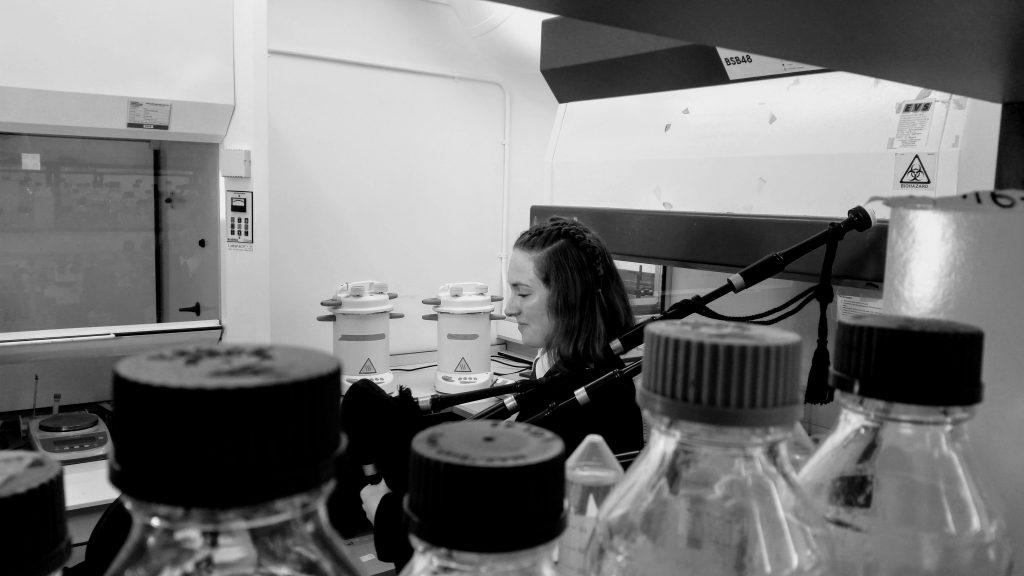 My thanks to colleagues in the School of Biosciences, Professor Dan Lloyd and Ian Brown, for opening up various venues in the Stacey Building to help with this morning’s shoot.
My thanks to colleagues in the School of Biosciences, Professor Dan Lloyd and Ian Brown, for opening up various venues in the Stacey Building to help with this morning’s shoot.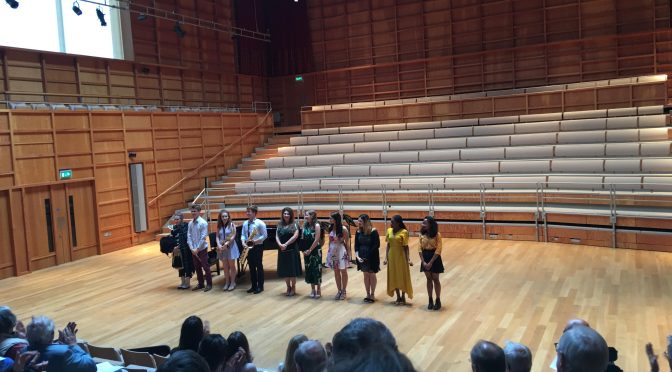
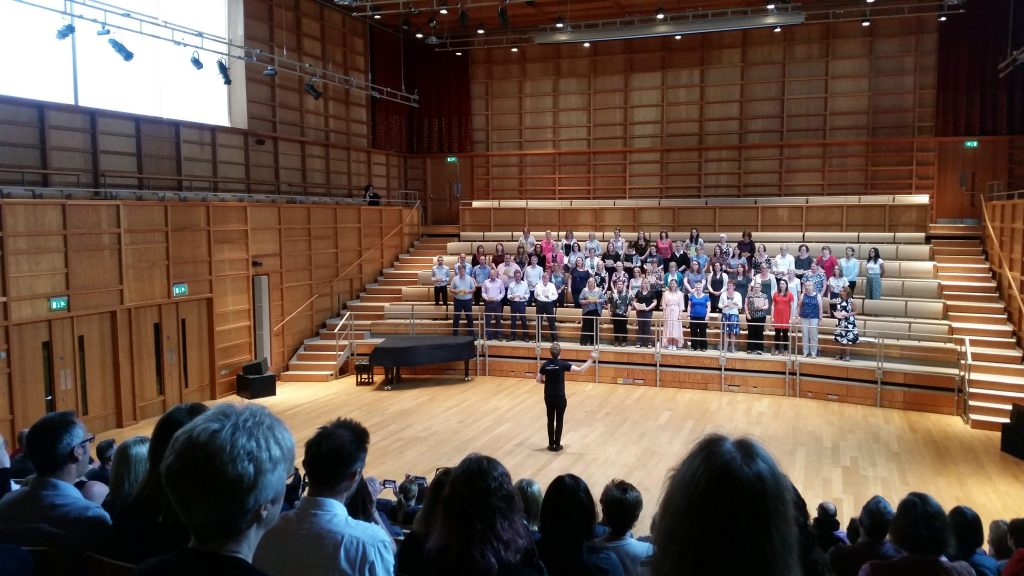
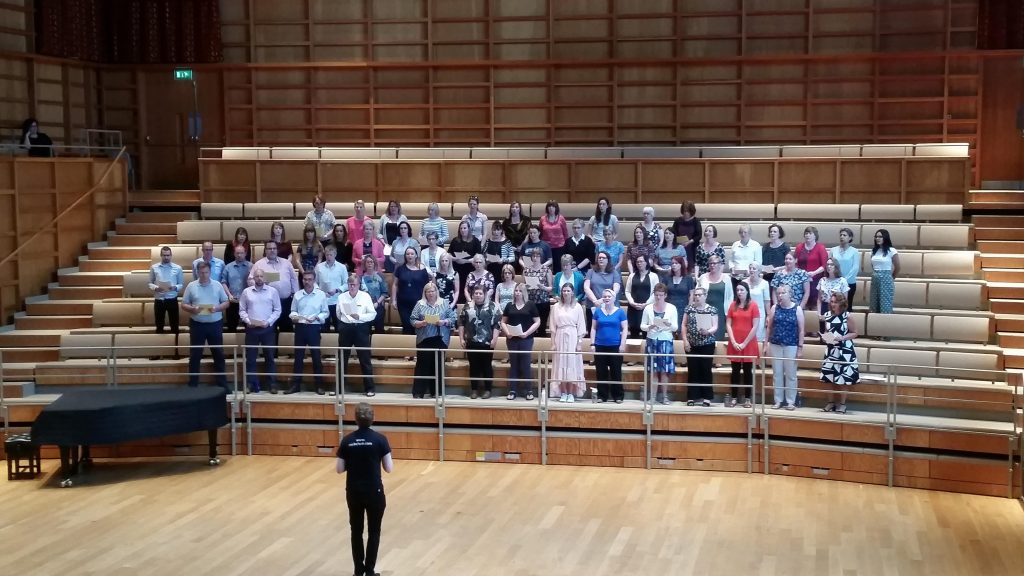
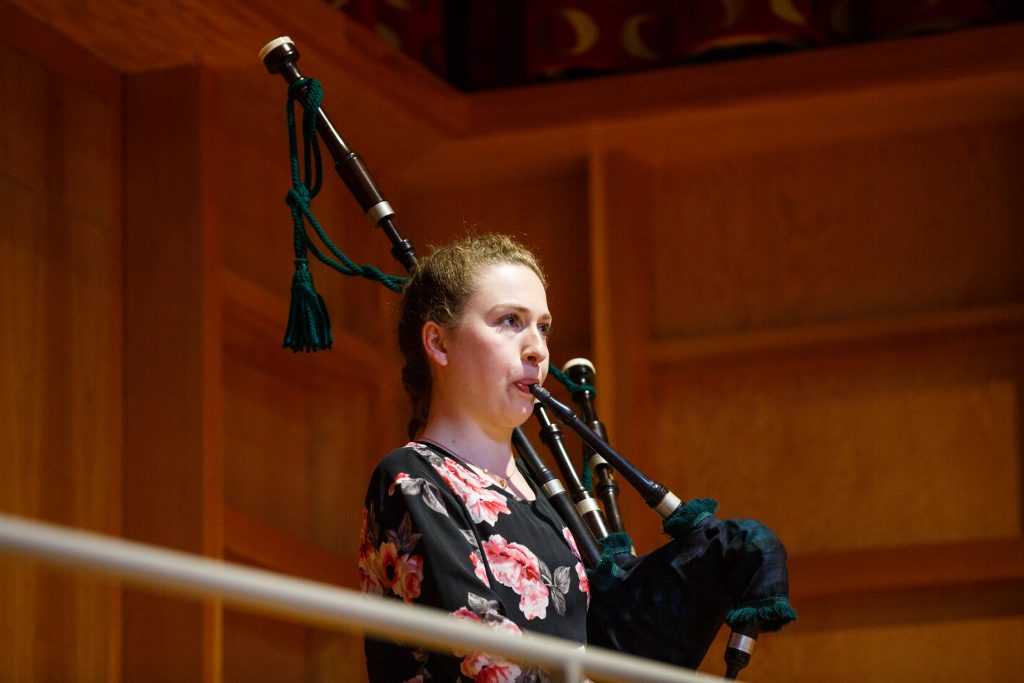
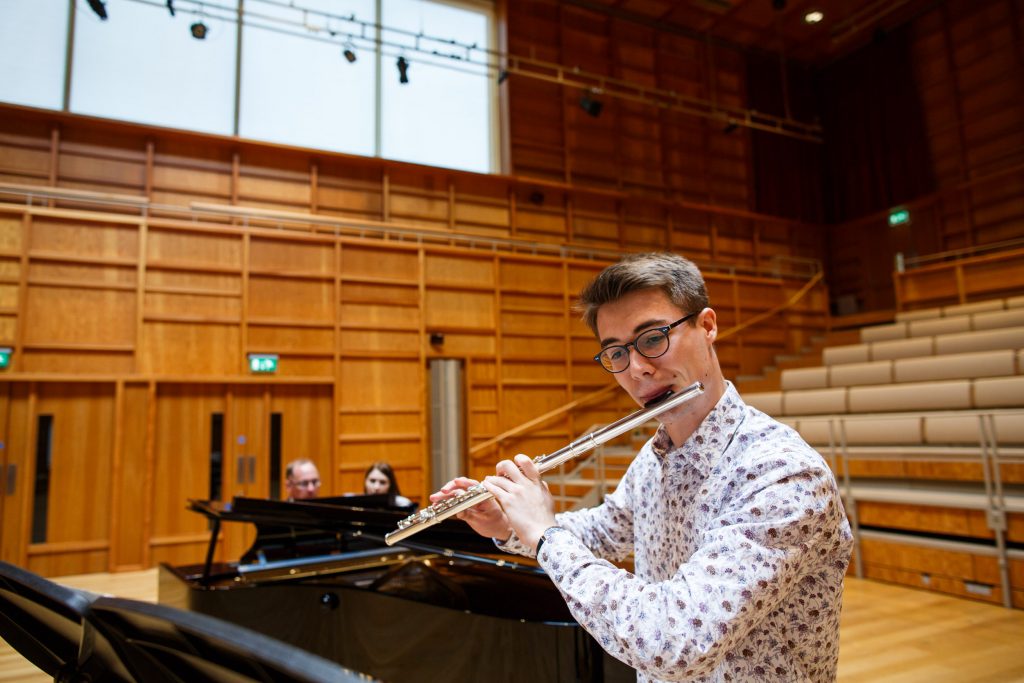 Four final-year violinists then delivered a pitch-perfect performance of Telemann’s second Concerto for Four Violins; Zaneta Balsevic (reading Music Performance), Florence Nightingale Obote (Biosciences), Molly Richetta (Mathematics) and Melody Brooks (Psychology).
Four final-year violinists then delivered a pitch-perfect performance of Telemann’s second Concerto for Four Violins; Zaneta Balsevic (reading Music Performance), Florence Nightingale Obote (Biosciences), Molly Richetta (Mathematics) and Melody Brooks (Psychology).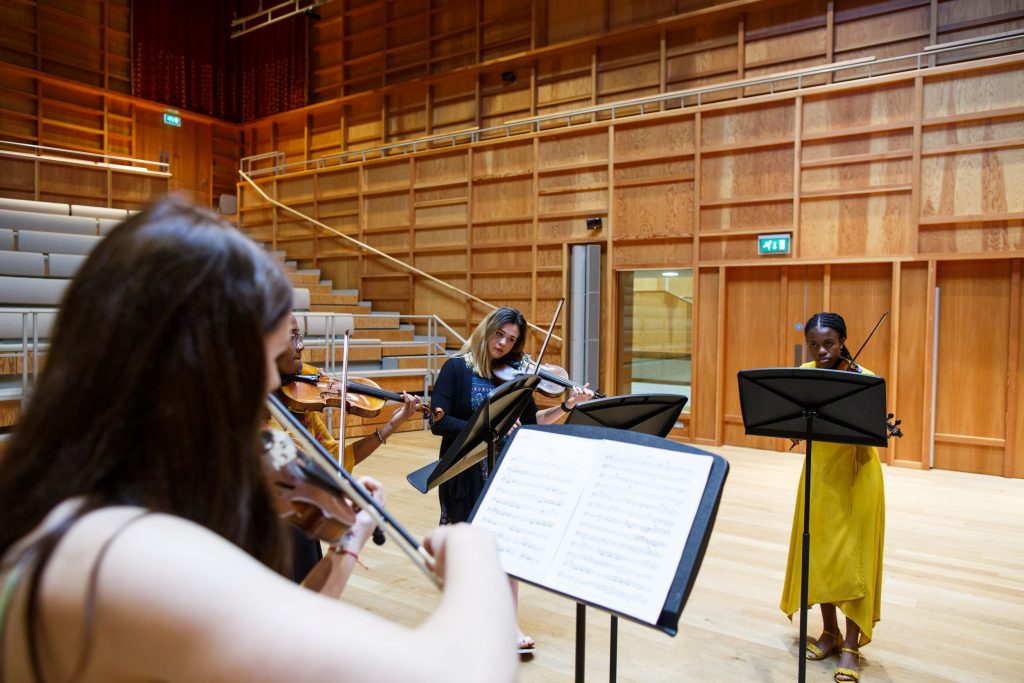 The programme took a folksy turn in the form of two saxophone duets from two first-year Music Scholars, David Curtiss (reading Physics) and Megan Daniels (Law), in melodies from Bulgaria and Spain.
The programme took a folksy turn in the form of two saxophone duets from two first-year Music Scholars, David Curtiss (reading Physics) and Megan Daniels (Law), in melodies from Bulgaria and Spain.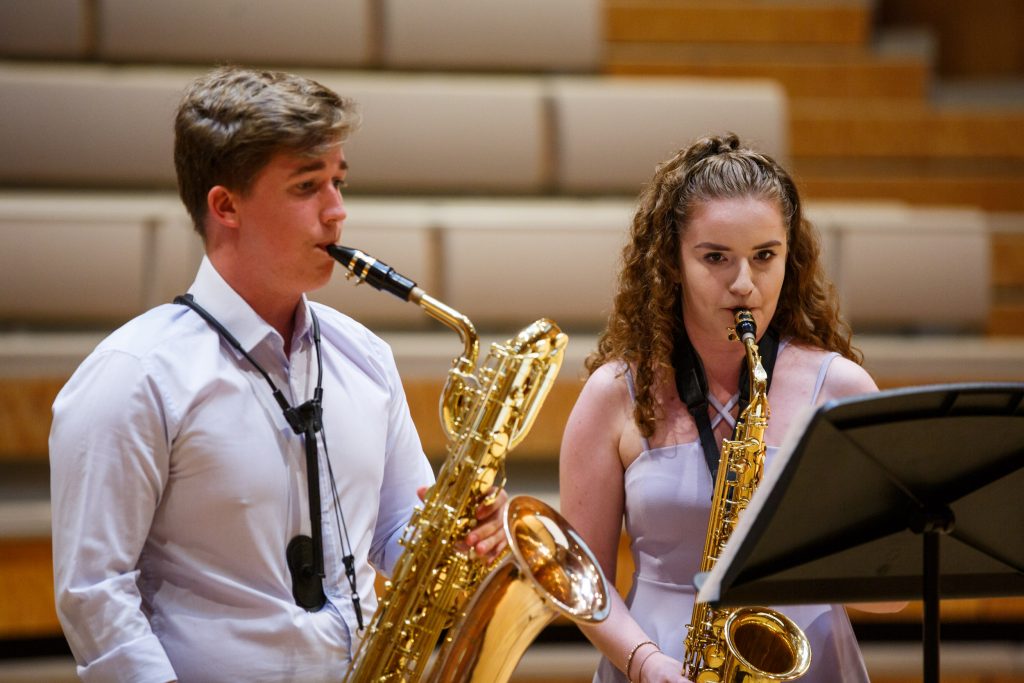 The concert drew to a close with final-year sopranos Fleur Sumption (History of Art) and Helen Sotillo (LLB Law Senior Status) in a lyrical rendition of the ‘Barcarolle’ from The Tales of Hoffmann.
The concert drew to a close with final-year sopranos Fleur Sumption (History of Art) and Helen Sotillo (LLB Law Senior Status) in a lyrical rendition of the ‘Barcarolle’ from The Tales of Hoffmann.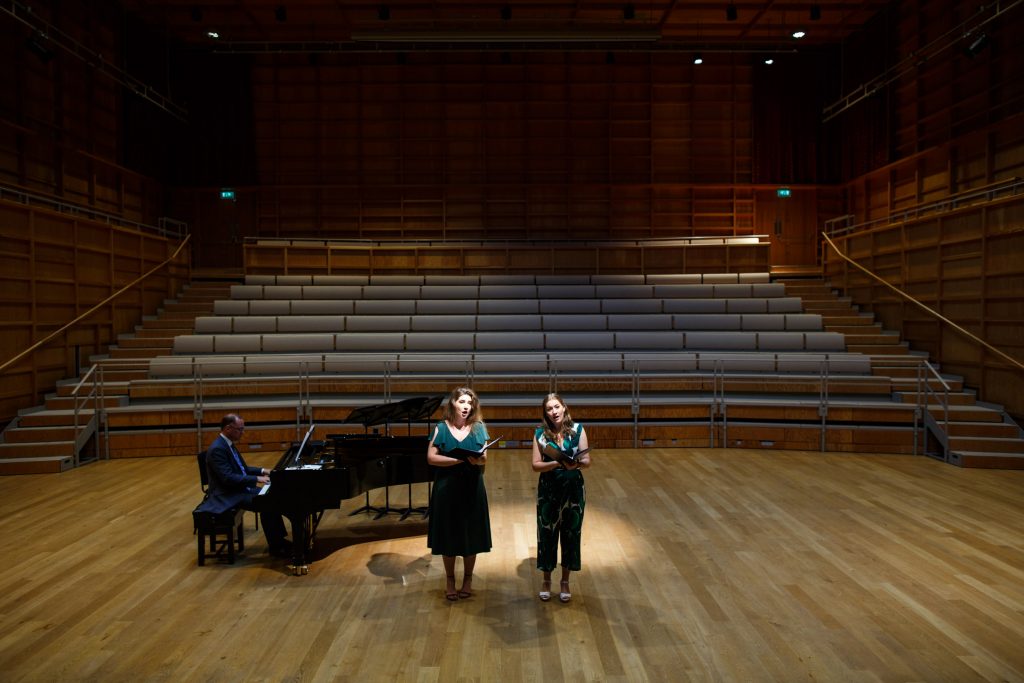
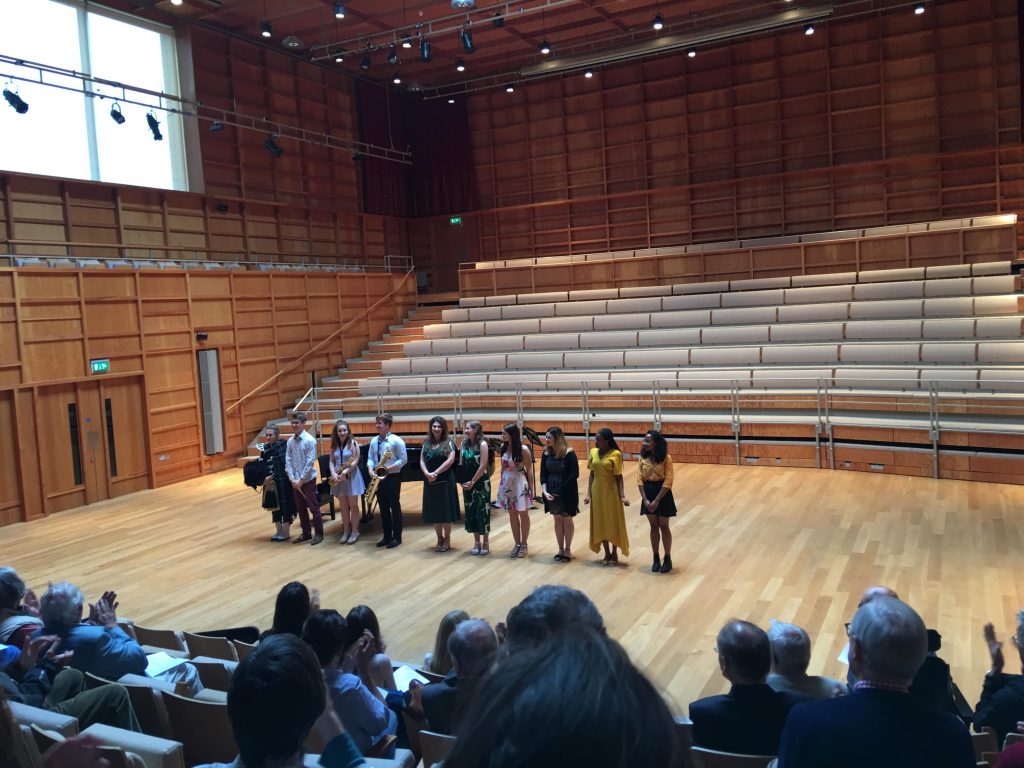
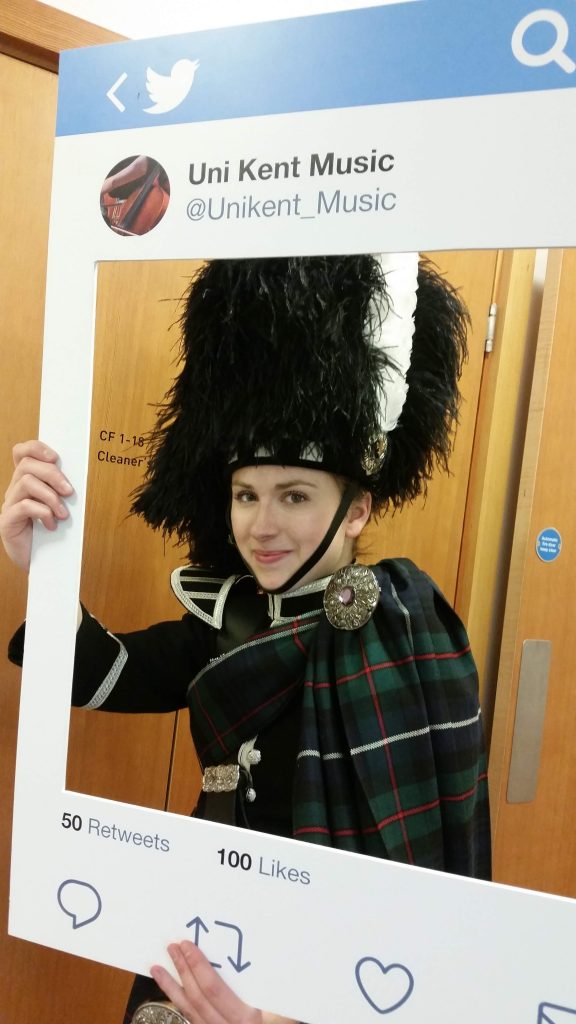
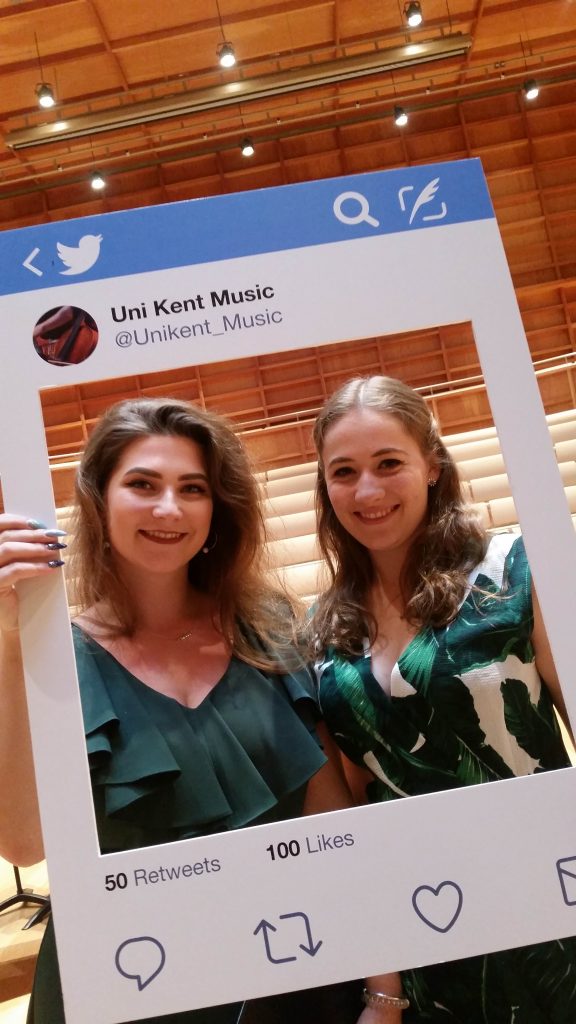
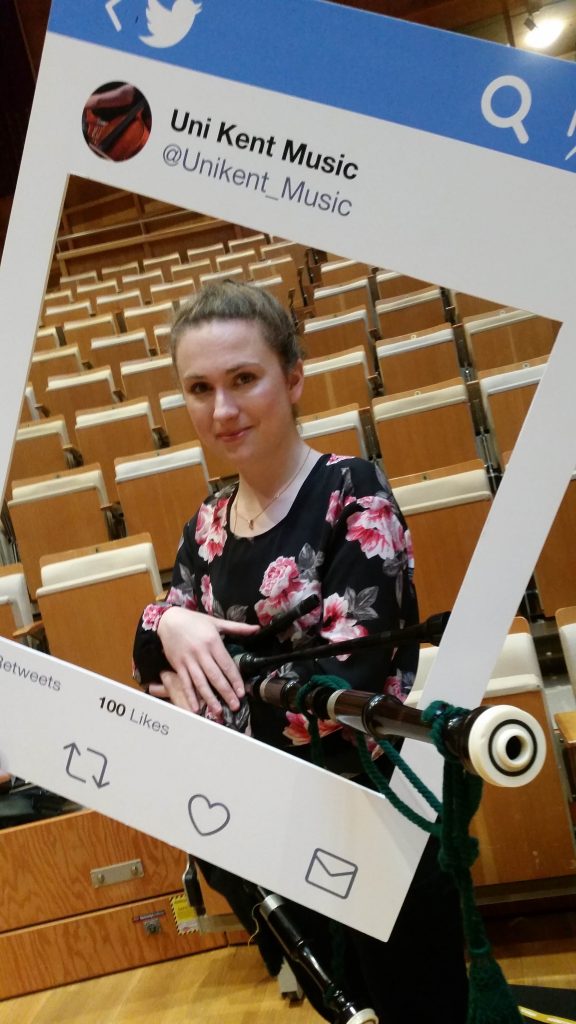
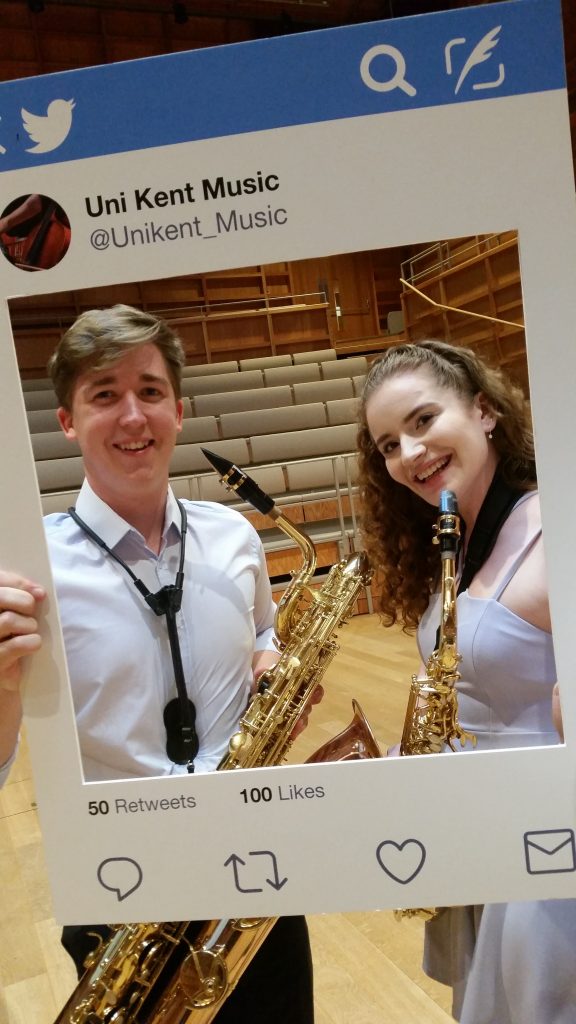
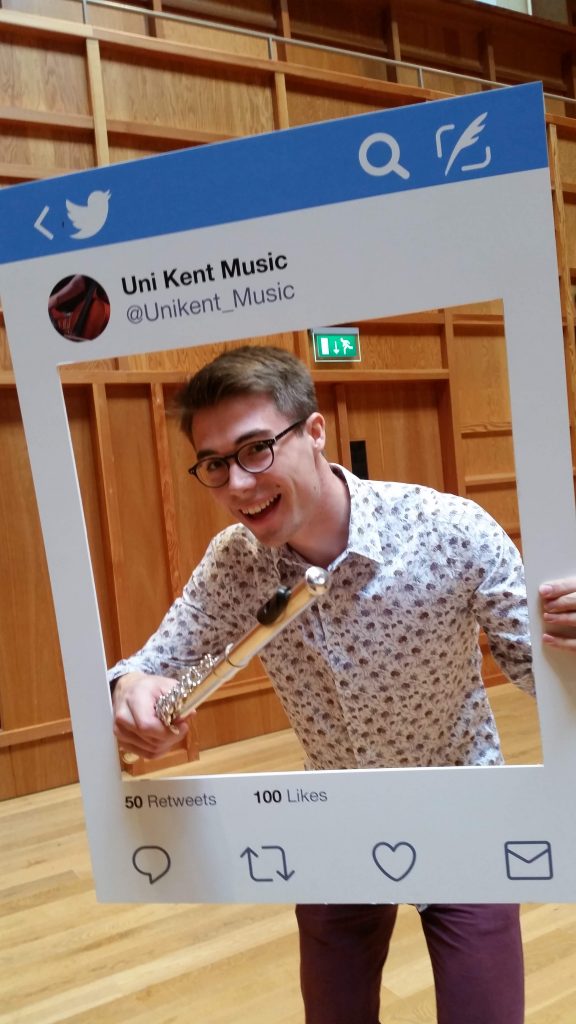
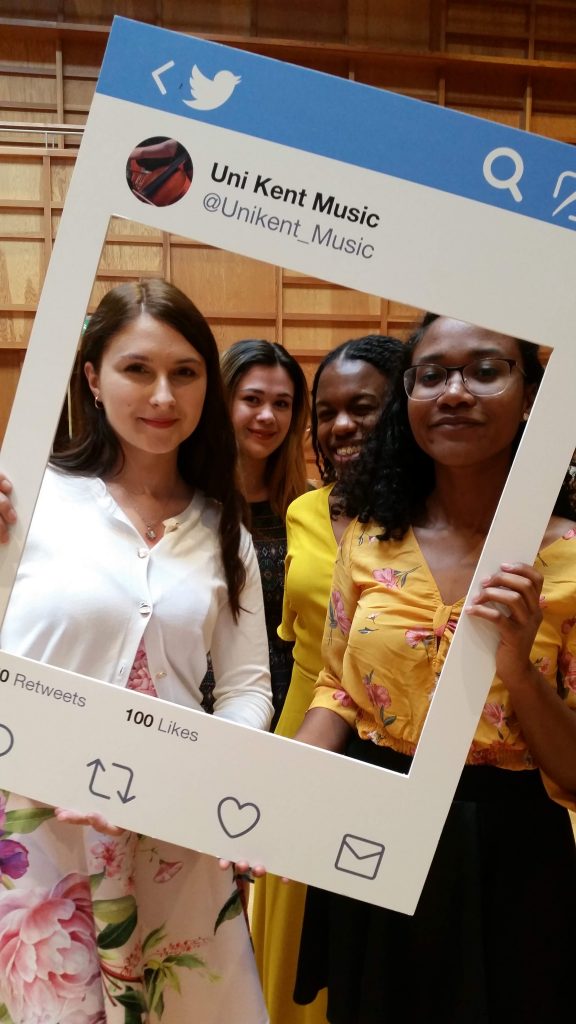
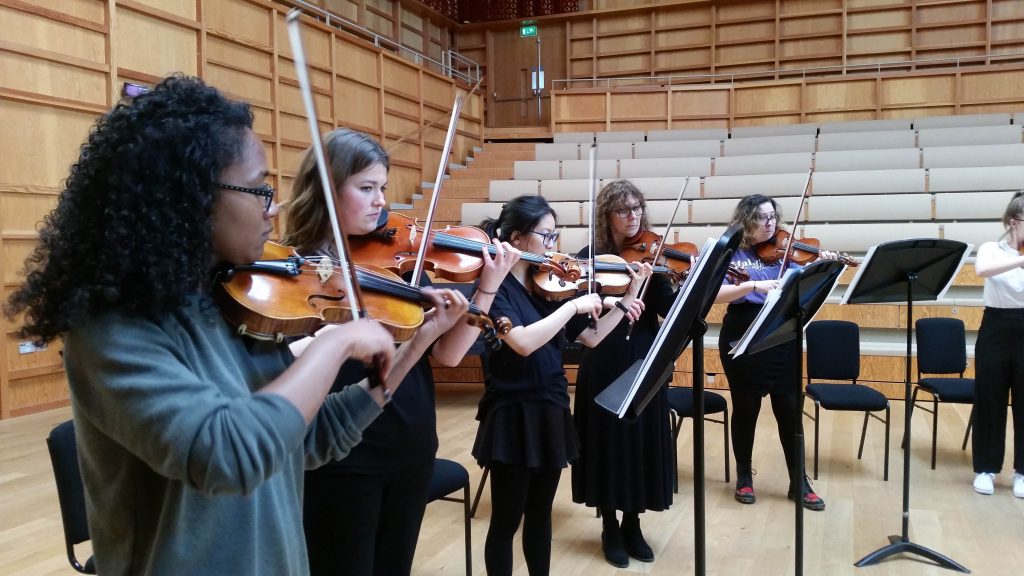 I did improve as the years went passed. Year 7 was when my violin journey started to accelerate. In secondary school, MHCHS, I played in all the possible orchestras I could join. This consisted of chamber orchestra, symphony orchestra, Vivaldi strings, string group, and so on. In year 9, MHCHS did a project with the Royal Philharmonic Orchestra, and I was given the opportunity to play the Vivaldi concerto for four violins accompanied by them. A year later, I got the opportunity again to play the Corelli Christmas concerto accompanied by them again. Both were conducted by Benjamin Pope.
I did improve as the years went passed. Year 7 was when my violin journey started to accelerate. In secondary school, MHCHS, I played in all the possible orchestras I could join. This consisted of chamber orchestra, symphony orchestra, Vivaldi strings, string group, and so on. In year 9, MHCHS did a project with the Royal Philharmonic Orchestra, and I was given the opportunity to play the Vivaldi concerto for four violins accompanied by them. A year later, I got the opportunity again to play the Corelli Christmas concerto accompanied by them again. Both were conducted by Benjamin Pope.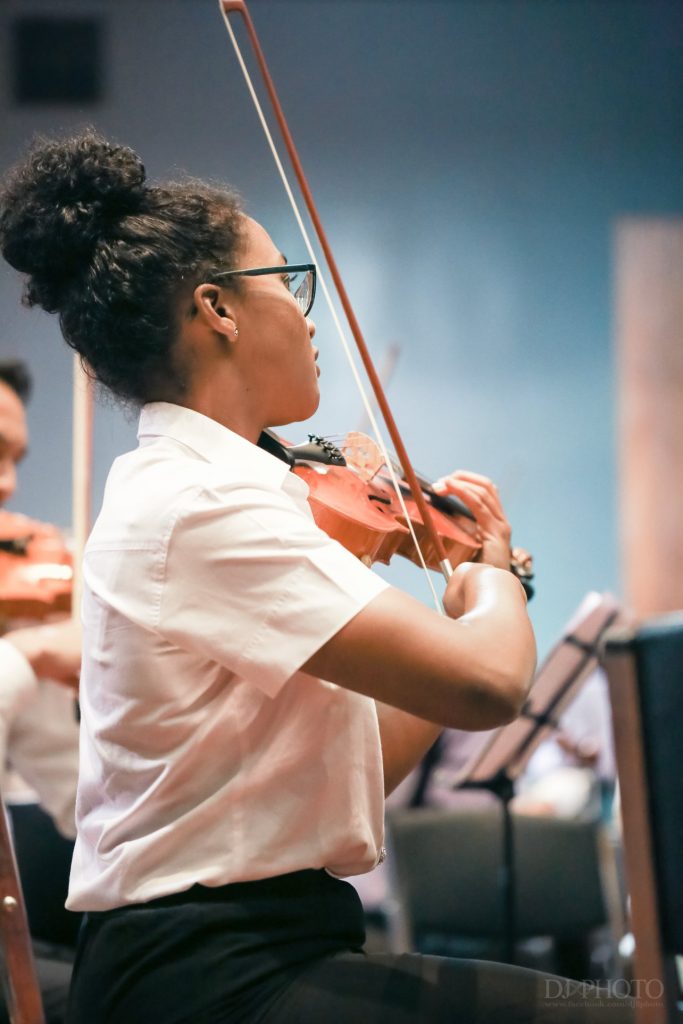
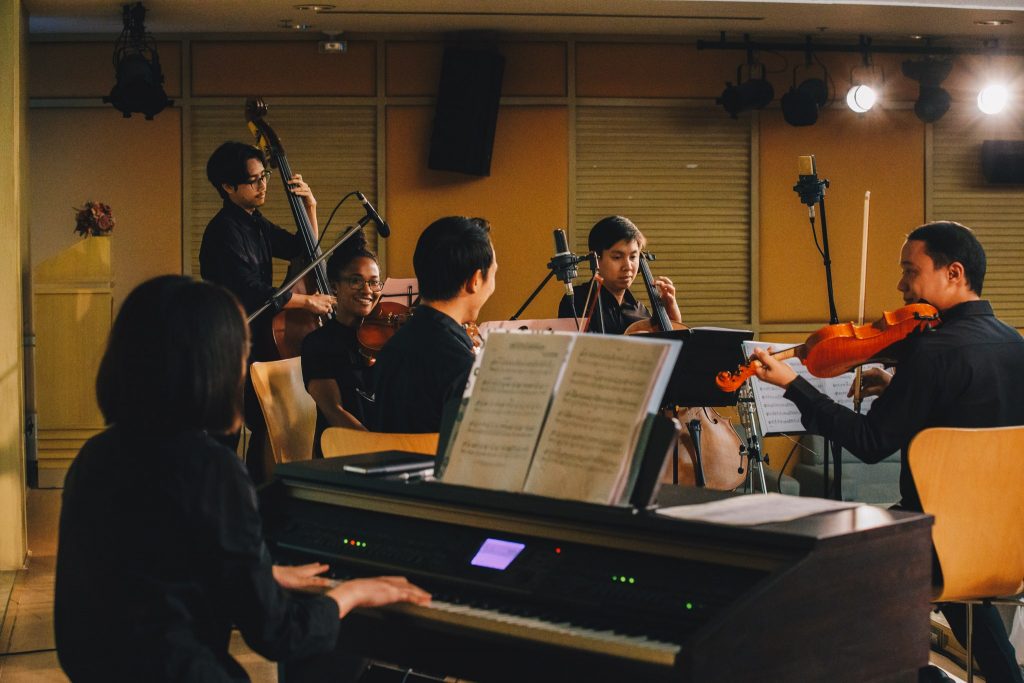
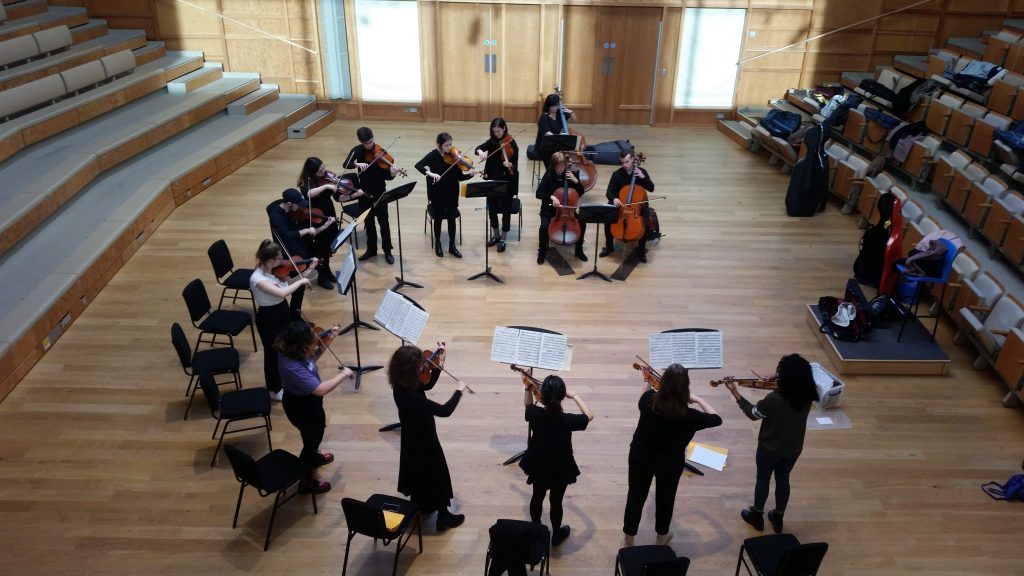
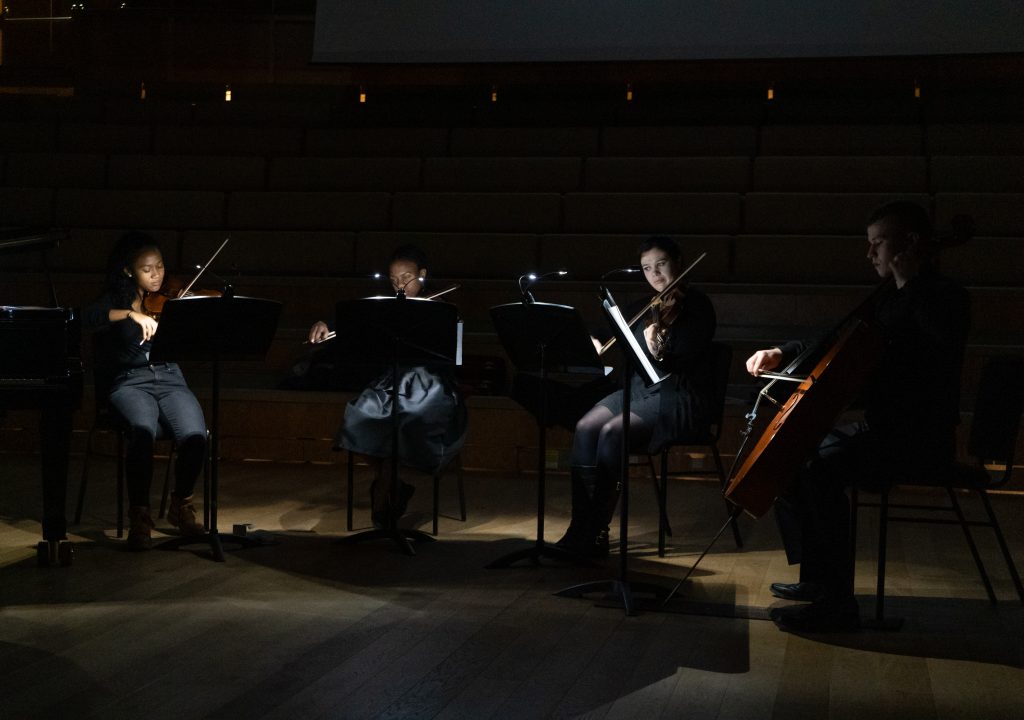
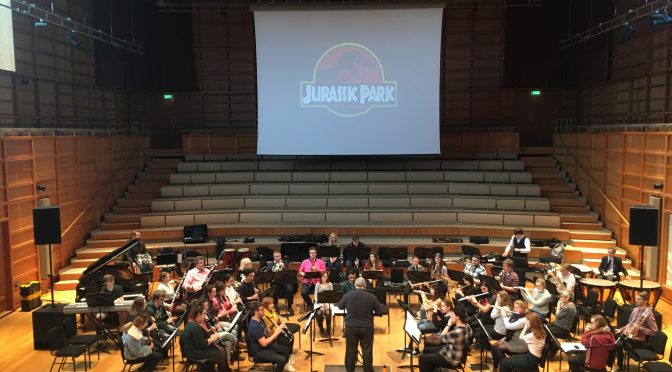
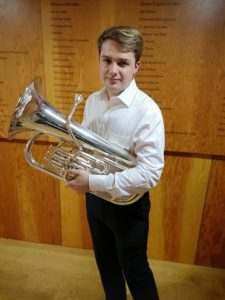 I picked up the Baritone as a second instrument halfway through Junior School and began to play in the school’s orchestra. Although the sound produced was crude in retrospect, I enjoyed playing with the type of ensemble and would return to playing in this setting much later in the form of brass ensembles, dectets and concert bands.
I picked up the Baritone as a second instrument halfway through Junior School and began to play in the school’s orchestra. Although the sound produced was crude in retrospect, I enjoyed playing with the type of ensemble and would return to playing in this setting much later in the form of brass ensembles, dectets and concert bands.
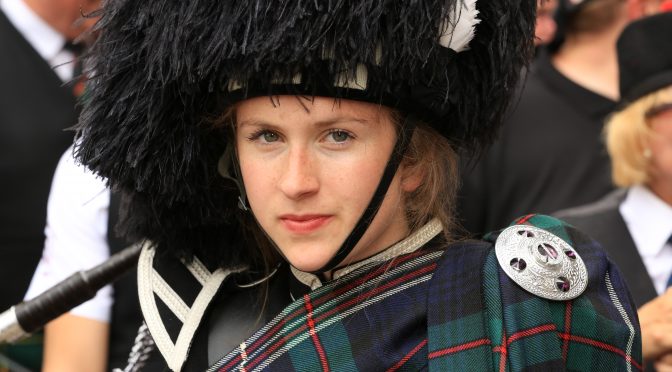
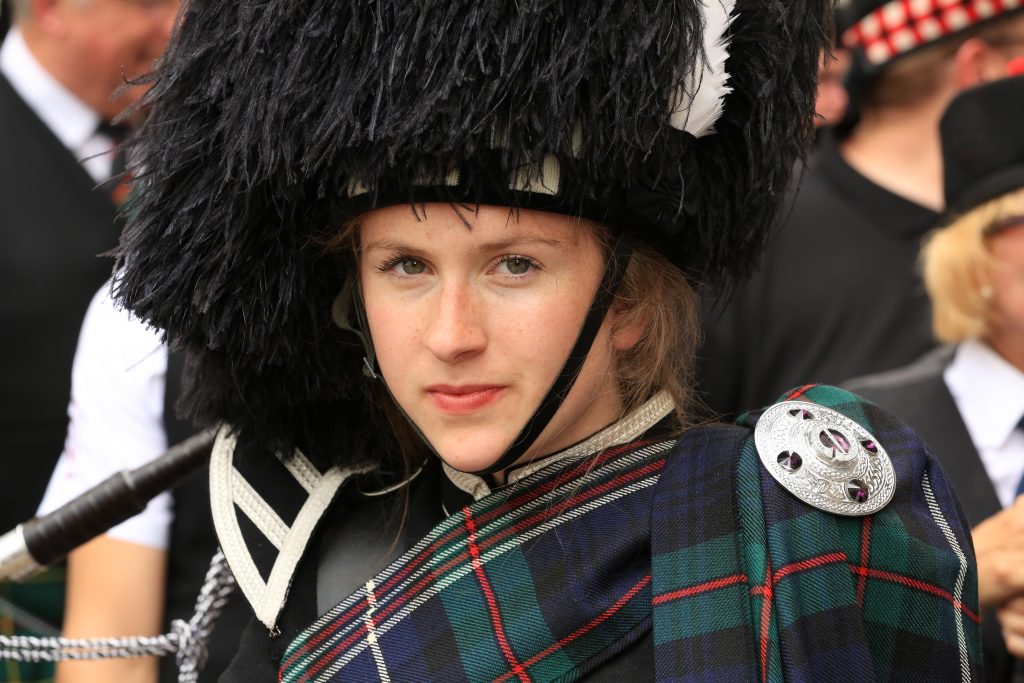 My family live in Salisbury, which offers fantastic opportunities for young musicians and as well as taking lessons, I was able to pursue my musical interests by joining Salisbury Area Young Musicians (SAYM). This organisation is run by dedicated volunteers and music teachers and holds weekly rehearsals offering the opportunity for young musicians of all abilities to play alongside others. Over the years I progressed and developed, participating in regular public performances with the orchestras and choirs, which included singing at the Royal Albert Hall in London. In addition to playing at SAYM, I also played the violin in my school orchestra, and sang in the school’s chamber and concert choirs.
My family live in Salisbury, which offers fantastic opportunities for young musicians and as well as taking lessons, I was able to pursue my musical interests by joining Salisbury Area Young Musicians (SAYM). This organisation is run by dedicated volunteers and music teachers and holds weekly rehearsals offering the opportunity for young musicians of all abilities to play alongside others. Over the years I progressed and developed, participating in regular public performances with the orchestras and choirs, which included singing at the Royal Albert Hall in London. In addition to playing at SAYM, I also played the violin in my school orchestra, and sang in the school’s chamber and concert choirs.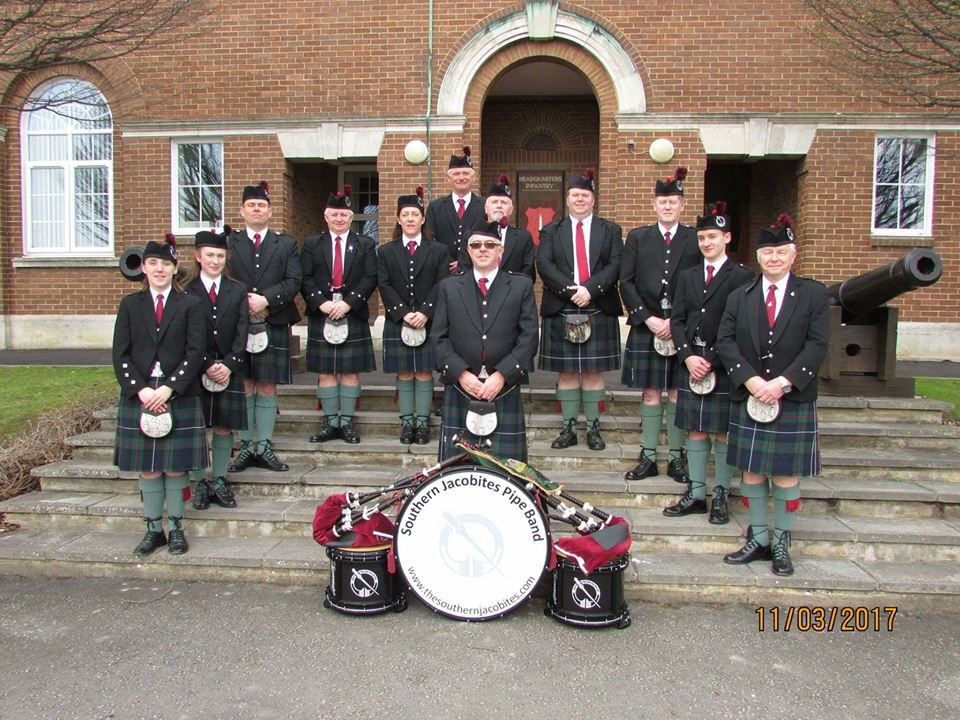 The Southern Jacobites is an active band and my first performance with them was in December 2013, at the Salisbury Christmas market. Since then, I have regularly taken part in band performances at carnivals, supporting parades and at private events. I have also been privileged enough to play with them at some unique events. In September 2014, the band performed with massed military musicians at the Tidworth Military Musical Pageant. In 2016 we supported the Treorchy Male Voice Choir and in 2017 we played alongside the National Symphonic Orchestra at the Great British Prom at Bowood House. Each performance was very different and gave me an opportunity to play tunes alongside other instruments that weren’t just pipes and drums.
The Southern Jacobites is an active band and my first performance with them was in December 2013, at the Salisbury Christmas market. Since then, I have regularly taken part in band performances at carnivals, supporting parades and at private events. I have also been privileged enough to play with them at some unique events. In September 2014, the band performed with massed military musicians at the Tidworth Military Musical Pageant. In 2016 we supported the Treorchy Male Voice Choir and in 2017 we played alongside the National Symphonic Orchestra at the Great British Prom at Bowood House. Each performance was very different and gave me an opportunity to play tunes alongside other instruments that weren’t just pipes and drums.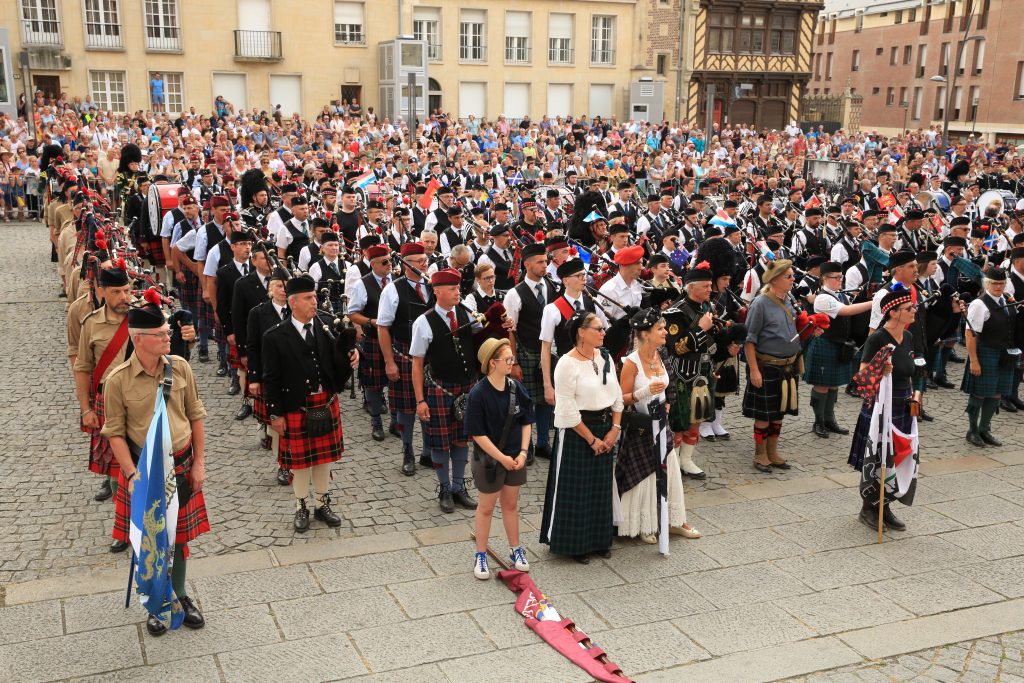 As well as performing as part of a band, I regularly perform both as a duet with my brother Hamish and as a soloist at weddings, parties, Burns’ Suppers and village fetes. Perhaps my most prestigious engagement as a soloist, was playing at Devizes Castle for the 50th Birthday of the vice-president of HSBC America, which was attended by guests from as far afield as Australia.
As well as performing as part of a band, I regularly perform both as a duet with my brother Hamish and as a soloist at weddings, parties, Burns’ Suppers and village fetes. Perhaps my most prestigious engagement as a soloist, was playing at Devizes Castle for the 50th Birthday of the vice-president of HSBC America, which was attended by guests from as far afield as Australia.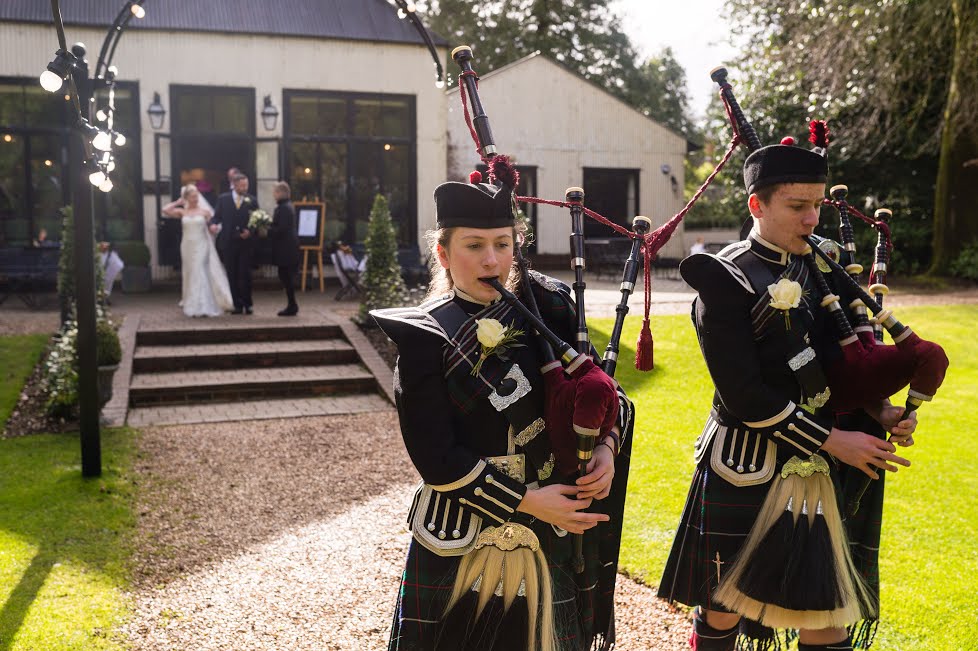
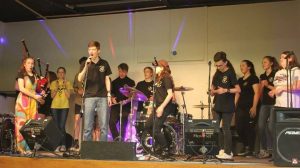 As well as playing traditional tunes, in my spare time I like to experiment playing styles of music that are not normally associated with the bagpipes. My inspiration for this came after seeing the ‘Red Hot Chilli Pipers’, a bagpipe rock band that plays contemporary pop and rock tunes, blending together pipes, drums, percussion and electric guitars. I have performed a rendition of ‘We Will Rock You’ at an Explorer Scout music festival and I am now learning some tunes by Queen.
As well as playing traditional tunes, in my spare time I like to experiment playing styles of music that are not normally associated with the bagpipes. My inspiration for this came after seeing the ‘Red Hot Chilli Pipers’, a bagpipe rock band that plays contemporary pop and rock tunes, blending together pipes, drums, percussion and electric guitars. I have performed a rendition of ‘We Will Rock You’ at an Explorer Scout music festival and I am now learning some tunes by Queen.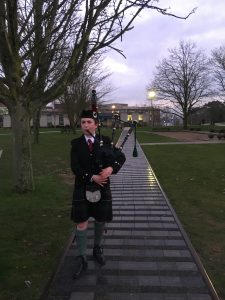 Since joining the University of Kent as a Bioscientist undergraduate student, I have performed outside the Gulbenkian for Burns’ Night (pictured, right) and I have joined the Glenduart Pipes and Drums, a competition pipe-band based in Folkestone. This is another new experience, as this band plays in a different style to the marching performances that I am used to doing with The Southern Jacobites.
Since joining the University of Kent as a Bioscientist undergraduate student, I have performed outside the Gulbenkian for Burns’ Night (pictured, right) and I have joined the Glenduart Pipes and Drums, a competition pipe-band based in Folkestone. This is another new experience, as this band plays in a different style to the marching performances that I am used to doing with The Southern Jacobites.